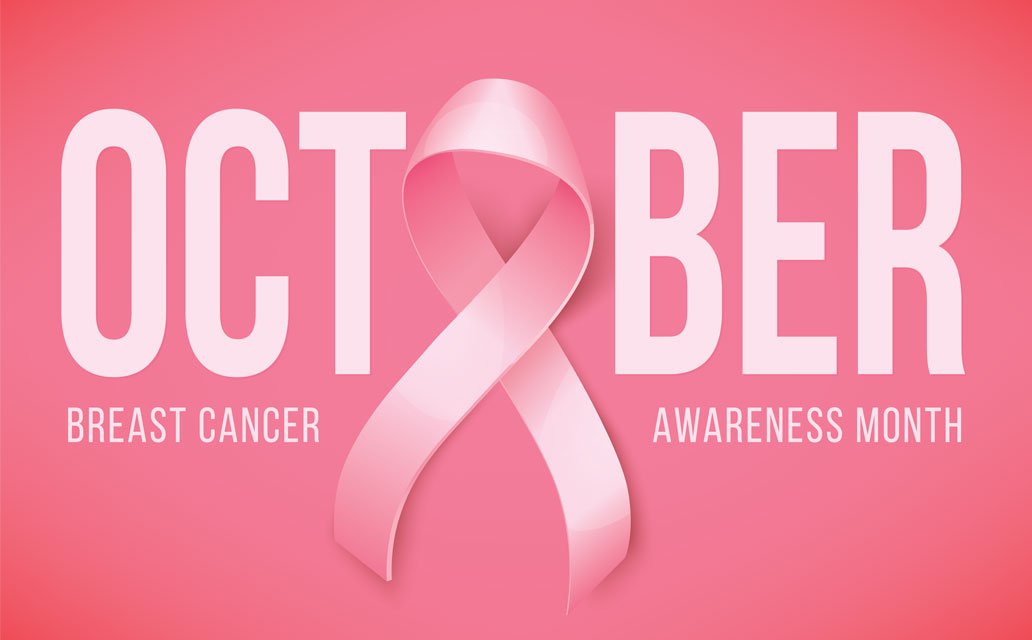
Fighter. Victor. Overcomer. Champion. Whichever term you choose, the month of October acknowledges and honors the women (and their families) who have battled and overcome breast cancer. Breast cancer awareness month reminds us of how resilient individuals can be when faced with the challenges that life throws at them.
Breast cancer is the most common cancer in women worldwide and the second most common cancer overall. It is a leading cause of cancer death in less developed countries and the second leading cause of cancer death in American women, surpassing lung cancer for the first time in 2020. According to the American Cancer Society, there are currently more than 3.8 million breast cancer survivors in the United States, including women still being treated and those who have completed treatment. Currently, the average risk of a woman in the United States developing breast cancer sometime in her life is about 13% (meaning there is a 1 in 8 chance she will develop breast cancer).
Most important, feeling overwhelmed, scared, depressed, or angry is a perfectly normal response to a breast cancer diagnosis. Younger women might be more affected by issues of sexuality or fertility, or feel more socially isolated. They might still be thinking about starting a family or having more children, and they might worry about how cancer and its treatment might affect this. Others might have already started families and might face practical, spiritual, emotional, financial, and physical challenges. Many survivors encounter problems associated with physical and recreational activities, body image, sexual interest, sexual function, and problems with dating for those who were single The side effects of cancer treatment can cause bodily changes, body image concerns, weight gain/loss, hair loss, and scarring. Symptoms and treatment can impact sex and intimacy within romantic relationships
For families, a breast cancer diagnosis can create feelings of powerlessness, anger, and sadness too. Women may feel as though they have to support and/or reassure their family and relatives when they are diagnosed with breast cancer, or they worry about telling their parents. It may be difficult for parents who are in good health to accept that their daughter is ill. Sometimes, a family member’s reaction can be overwhelming for the patient, which can then make them reluctant to talk about it. Young children may not want to talk about recently learning that their mom has just been diagnosed with breast cancer, or they may get angry. Explaining the illness fully and in a way that is age-appropriate can help children understand what is going on, and remember that children are going to cope and react in different ways.
Encouraging news and reasons to be hopeful:
- Promisingly, breast cancer survival rates have increased notably in recent years; the number of deaths associated with this disease is steadily declining
- It’s important for those battling breast cancer (and their loved ones) to know that there is advice and support out there to help them cope.
- Early detection, genetic testing, personalized approaches to treatment and a better understanding of the disease progression all positively impact the course of treatment and likelihood for remission
- When cancer negatively impacts intimacy in the relationship, maintaining a connection to your partner with hugging, holding hands, and snuggling all help to maintain a sense of physical connection and intimacy, stabilizing the relationship
- Therapists can help spouses manage the challenge of offering both emotional and practical support while dealing with their own feelings.
- Children, parents, and friends involved in caretaking can also benefit from psychological interventions
- Psychological treatment may even boost women’s chances of survival. In one study, for instance, a decrease in depression symptoms was associated with longer survival in patients with metastatic breast cancer.
- Relying on mental health professionals to empower the survivor to make more informed choices in the face of often-conflicting advice can help them communicate more effectively with their health care providers.
- Many therapists are trained to support the woman work through their grief, fear, and other emotions, which can positively impact response to cancer treatment by reducing emotional stress on the body
Breast cancer survivors (and those who lose the battle) are not statistics. They are our mothers, daughters, sisters, friends, co-workers… and they all remind us of how resilient we can be. Surviving breast cancer often provides a new sense of meaning and purpose in the lives of those that have fought and overcome the battle.
Helpful Breast Cancer Resources, locally and nationally
Susan G. Komen Greater Atlanta: Includes low-cost screening and diagnostic services information.
https://komenatlanta.org/about-breast-cancer/local-resources-and-support/
Northside Hospital (Atlanta, GA): Includes information on behavioral health services offered by Northside Hospital Cancer Institute.
Your Cancer Story: Cancer survivors share their stories.
https://www.yourcancerstory.com/survivorship/general
American Cancer Society Reach To Recovery Program: Includes information on their program that matches those in treatment with a local volunteer who has had breast cancer.
https://www.cancer.org/involved/volunteer/reach-to-recovery.html
References:
- https://www.bcrf.org/breast-cancer-statistics-and-resources?utm_source=google&utm_medium=cpc&gclid=Cj0KCQjw6-SDBhCMARIsAGbI7UjE1kF61Zq_QhkNO_t7lwatzvSpo3J-_cW6C99vBsgNeKDGeY8WDOwaAiAREALw_wcB
- https://www.mayoclinic.org/diseases-conditions/breast-cancer/symptoms-causes/syc-20352470
- Ganz, P.A., Coscarelli, A., Fred, C. et al. Breast cancer survivors: Psychosocial concerns and quality of life. Breast Cancer Res Tr 38, 183–199 (1996). https://doi.org/10.1007/BF01806673
- Giese-Davis, J., Collie, K., Rancourt, K.M.S., Neri, E., Kraemer, H.C., & Spiegel, D. (2010). “Decrease in depression symptoms is associated with longer survival in patients with metastatic breast cancer: A secondary analysis.” Journal of Clinical Oncology, 29 (4): 413–420.
Face your fears. Live with uncertainty. Take control of your life.
Jen Powell, LPC
Jen Powell, LPC specializes in the assessment and treatment of anxiety disorders, trauma, postpartum mental health, and OCD in adults

